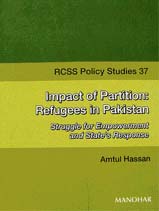|
SHORT TAKES
Travails of a trailblazer
Randeep Wadehra
Gulab Bai
by Deepti Priya Mehrotra
Penguin. Pages: viii + 318. Rs 295.
 When
a pleb earns elite’s
respect, one sits up and takes notice. And, if that pleb is a Dalit
woman, a legend is born to earn the nation’s unstinting homage. Gulab
Bai belonged to Bedia caste of UP’s Balpurva village. As a twelve-year
old in 1931 she stormed the then male bastion when she became the sole
female performer in a nautanki troupe, only to set up her own company
subsequently. Thus began her long and arduous trek to stardom and
riches, braving threats to her life en route. Her name became synonymous
with the hoary folk art that was the medium of mass entertainment in
those days. Her achievements earned her Padmashree and acceptance in the
rarefied social echelons. Mehrotra has traced Gulab’s life and times
with due diligence – giving us a picture that has conflicting colours
– bright, dull and dark. Ultimately what one sees is a woman who was a
non-conformist (she was an unwed mother), gritty, talented and
trailblazer. Although she was much acclaimed for her contributions to
this folk art she died a disillusioned woman. When
a pleb earns elite’s
respect, one sits up and takes notice. And, if that pleb is a Dalit
woman, a legend is born to earn the nation’s unstinting homage. Gulab
Bai belonged to Bedia caste of UP’s Balpurva village. As a twelve-year
old in 1931 she stormed the then male bastion when she became the sole
female performer in a nautanki troupe, only to set up her own company
subsequently. Thus began her long and arduous trek to stardom and
riches, braving threats to her life en route. Her name became synonymous
with the hoary folk art that was the medium of mass entertainment in
those days. Her achievements earned her Padmashree and acceptance in the
rarefied social echelons. Mehrotra has traced Gulab’s life and times
with due diligence – giving us a picture that has conflicting colours
– bright, dull and dark. Ultimately what one sees is a woman who was a
non-conformist (she was an unwed mother), gritty, talented and
trailblazer. Although she was much acclaimed for her contributions to
this folk art she died a disillusioned woman.
Impact of Partition:
Refuges in Pakistan
by Amtul Hassan.
Manohar. Pages 141. Rs 260
 The
spectre of Partition still haunts the subcontinent. The largest ever
exchange of populations gave birth to several humanitarian problems. But
in Pakistan there was additional problem – sharing of political power.
During the first decade after the Partition, Punjabi refuges from India
quickly assimilated with the locals in West Punjab, discarding the
Mohajir identity. The
spectre of Partition still haunts the subcontinent. The largest ever
exchange of populations gave birth to several humanitarian problems. But
in Pakistan there was additional problem – sharing of political power.
During the first decade after the Partition, Punjabi refuges from India
quickly assimilated with the locals in West Punjab, discarding the
Mohajir identity.
But the Urdu-speaking
refugees preferred to retain the tag. Since most of them preferred to
settle in Sindh, and Karachi was the national capital then, Mohajirs
(Hassan prefers the term Partition refugees) seemed to enjoy
politico-administrative advantages. But when the capital shifted to
Islamabad, things became rather uncomfortable for them. Hassan examines
their past and current status in the Pakistani polity, while looking at
the prospects of their empowerment.
Path to Nirvana
by Gursharn S Zal
Trafford, Canada. Pages 209.
Price unstated.
 There’s
a strange symbiosis between love, pain and poetry. Love leads to joy and
pain, culminating in unaffected verse. There’s
a strange symbiosis between love, pain and poetry. Love leads to joy and
pain, culminating in unaffected verse.
Pain on the contrary leads
to empathy, understanding and, yes, love and verse.
Poetry rouses our
sensibility to pain and love – both sensual and spiritual. Zal has
tried to address these.
Though he dwells on
different types of love, he does not shun the carnal. Poetry is not for
the hard-nosed self-seeker.
It’s a sublime art that
enriches sensitive souls. You’ll experience a collage of emotions
while reading this anthology, as Zal avers in his poem Wedding of
Victoria ‘warmth of love/warmth of desire/the joy/the sorrow/the
conflicts’.
|